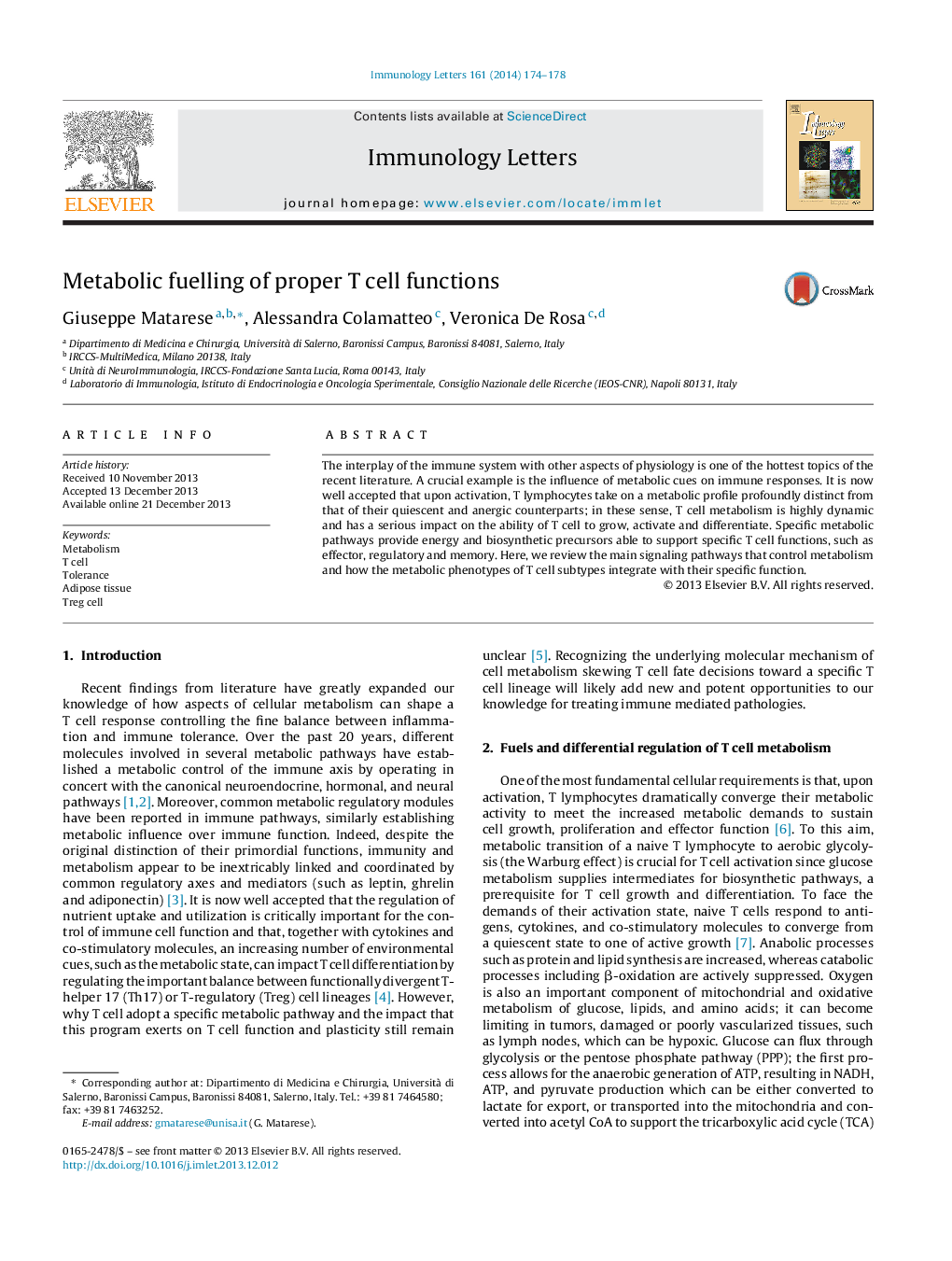| Article ID | Journal | Published Year | Pages | File Type |
|---|---|---|---|---|
| 3355390 | Immunology Letters | 2014 | 5 Pages |
•T cells need specific metabolic programs to proliferate and promote effector and regulatory responses, respectively.•mTOR is a key player in this context linking specific extracellular milieu components and intracellular metabolism.•Glycolysis generally fuels inflammatory cells whereas lipid oxidation supports anti-inflammatory responses.•Metabolic manipulation can have relevance in novel therapeutic approaches in autoimmunity.
The interplay of the immune system with other aspects of physiology is one of the hottest topics of the recent literature. A crucial example is the influence of metabolic cues on immune responses. It is now well accepted that upon activation, T lymphocytes take on a metabolic profile profoundly distinct from that of their quiescent and anergic counterparts; in these sense, T cell metabolism is highly dynamic and has a serious impact on the ability of T cell to grow, activate and differentiate. Specific metabolic pathways provide energy and biosynthetic precursors able to support specific T cell functions, such as effector, regulatory and memory. Here, we review the main signaling pathways that control metabolism and how the metabolic phenotypes of T cell subtypes integrate with their specific function.
